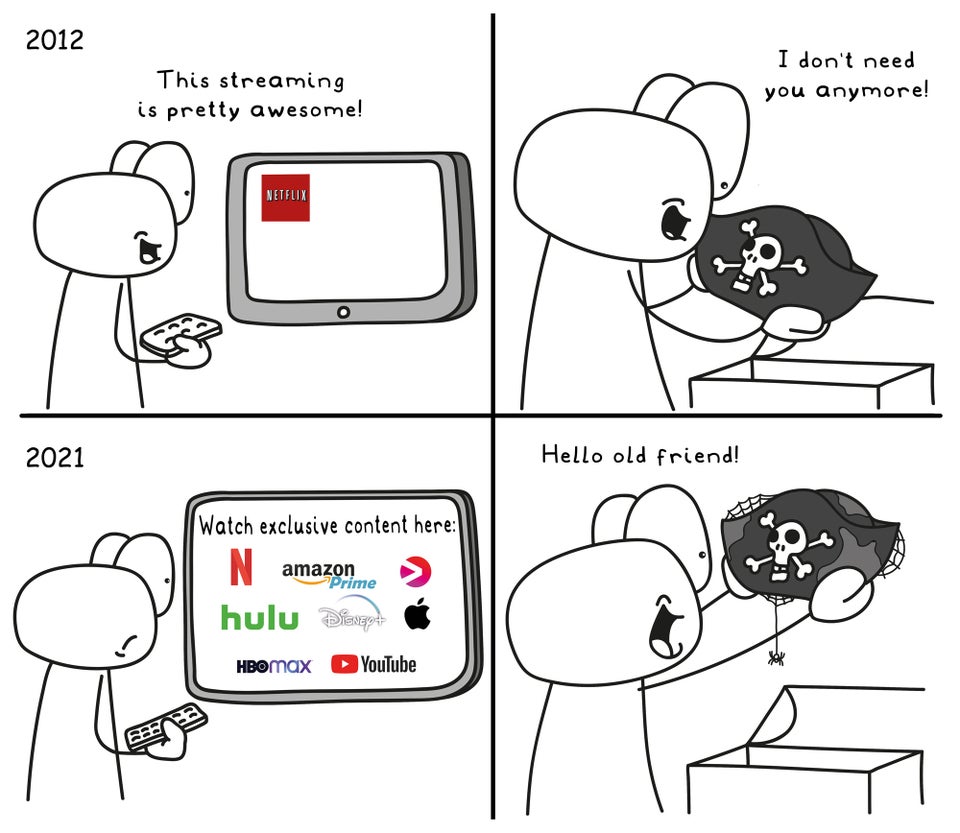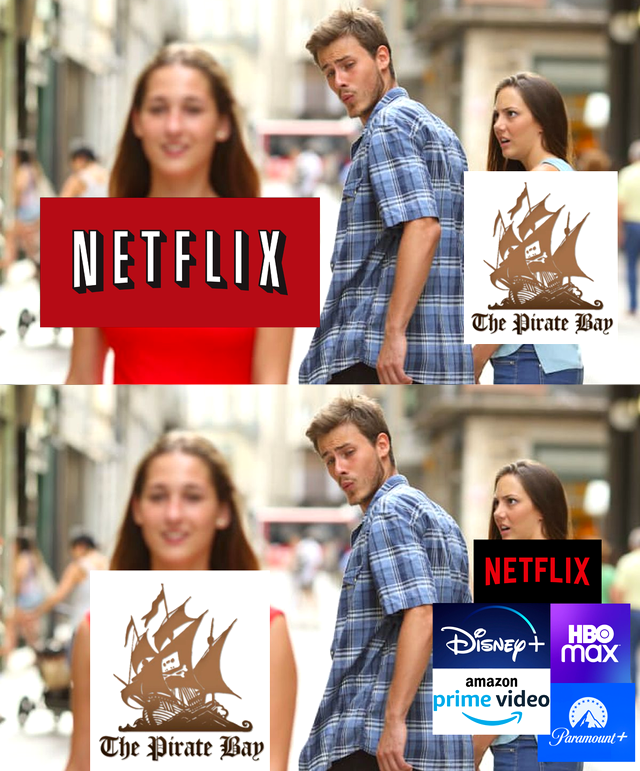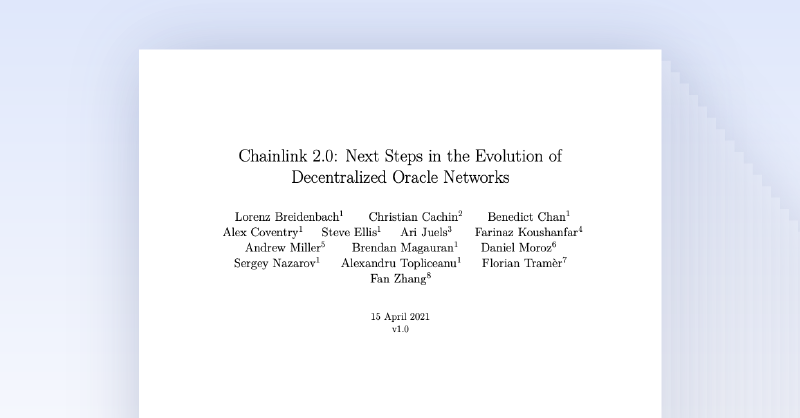The best properties are rarely for sale. The best employees are rarely job hunting. The best teachers are rarely teaching. Anything truly great is off the market. Most people think this means you can’t have it. What it really means is you have to go find it and sell yourself.
It should be easier to buy your thing than to pirate it. Make it easy for people to do the right thing. pic.twitter.com/usAz70HfIP

Great design and engineering is about love. Every time I hear Jony Ive speak, I can't help but smile.
Before and now. Whenever piracy becomes appealing is when you know an industry is ripe for disruption. pic.twitter.com/lGZ1hrQNXv

When @trouty asked @garyvee how the Empathy logo started, Gary said: “I was just so damn appreciative every time I did a book signing, and I just started doing this heart and exclamation point. It felt so right, it just became the way I signed everything.” pic.twitter.com/SPe8lcuJqE
Roadmaps Are nice .. they also need to be executed on. . I’ve seen many pitch decks that made predictions and promises … 99% didn’t make it
Perhaps the best way to build kickstarter for people is to first build YC for people. On Deck will build it and enable people in our other cohorts (e.g. founders, angels, writers) to tokenize themselves should they want to.
On Deck aims to take the bundle that is Stanford—network, credentials, education, etc—and apply it to the entire lifecycle of a person’s career. A place where people explore what they want to do, gain skills & expertise, and make the most meaningful relationships of their lives.
Every great product gets built by a team, but rarely by a committee.
Look at the products & services wealthy people use, because soon enough many of the products and services that they use to be more effective & happy will be cheap enough for the masses.
Request for product: Masterclass for Wikipedia. A site that reliably has the best explanations of concepts by the most appropriate experts, all accessible to the curious beginner.
Most people build product first and then layer community on top, but it's often more defensible to build strong community first and then add product(s) on top.
I am deeply grateful to all the amazing coauthors of the Chainlink 2.0 whitepaper, thank you for the deep thought and care you've put into helping define the future of how decentralized oracle networks will redefine our industry via hybrid smart contracts: research.chain.link/whitepaper-v2.… pic.twitter.com/X6XhBThBcb

"Most people underestimate what they can do in ten years." Writing a story on time + patience and why building great stuff takes longer than most people think. What's your fav example/story of a great product/biz/thing taking years to make (even though most think it was fast)?
Just as it takes a company to sustain a product, it takes a community to sustain a protocol.
You can’t A/B test your way to product-market fit.
"The world is different today than it was in 2005! The honeymoon consumers afforded "the free internet" is over. Tons of them have realized that they'd rather pay for a product with cash money than with their privacy, their data, or their attention." world.hey.com/dhh/we-will-mo…
This crazy scheme actually worked! There are many tens of thousands of paying HEY customers today. And we've already signed up hundreds of paying companies as well, even though HFW rolled out like five minutes ago. People are willing to pay for a product and not be the product. twitter.com/dhh/status/124…
If you're amongst the many tens of thousands of paying customers we have for HEY, you now officially get to say you're part of the ALTERNATIVE 😄. And you were there before it went mainstream. You cool. theverge.com/2021/3/4/22314…
Just planning the next cycle of work for @heyhey. Covering some much requested basics (oh hello personal domains!), but also continuing on with more of the wacky stuff that NOBODY ASKED FOR 😂❤️
"This all stems from the idea that the object of business is interchangeable. That it doesn't matter whether you're making cars or games or whatever. That there's this abstract managerial science above it all.. No. It does fucking matter." world.hey.com/dhh/stop-talki…
"We needed a support tool, and we hadn't built one, so we found ourselves paying for it many, many times over anyway. Inertia is a powerful force. It took living with HEY's Post Office to realize how badly we needed such a tool for Basecamp." world.hey.com/dhh/you-ll-pay…
I hate it when I can't copy+paste a bit of information and have to type it out. Just had to send a (personal) wire and the PDF would not allow me to copy the account # and my bank had paste disabled. Every time I use a normal bank it reminds why I started @BankMercury.
Even though @BankMercury has 12 support reps I still receive 100% of the support emails and look through them often. Having everyone at the company stay in touch with issues affecting users is especially important as we scale the company. Any tools people use that make it easy?
Back when we had 10 people working at @BankMercury I could not imagine what 100 people would do here. Now that we are almost at 100 people, I can easily imagine what 1,000 people would do here. So much to be built!
Google Calendar has trained me to think that a Google Meet link on the invite is probably a mistake. That one decision has completely ruined the GMeet brand. Doing bad/dark UI patterns to pump up usage numbers might be good short term but an awful long term decision.
The best part of building software is the job is never done. Since starting Box, I don’t think I’ve ever left a customer conversation where this isn’t something new left to go do. Build the future, listen to your customers, repeat.
Product Managers: What's in your software stack? What do you use to organize your roadmap, track personal todos, write specs, brainstorm, communicate, etc.?
An underappreciated benefit of working at a large company: Access to a ton of product strategy memos, to help you build your own strategic thinking muscle. There are very few examples of great public product strategy docs (because obviously they include sensitive information)
Why you shouldn't become a product manager: 😬 You're known as the “shit umbrella” 😬 Many people don’t actually want you on the team 😬 Tons of meetings 😬 No one knows what you do all day 😬 Hard to know if you are doing well 😬 Little to no appreciation (there's more 👇)